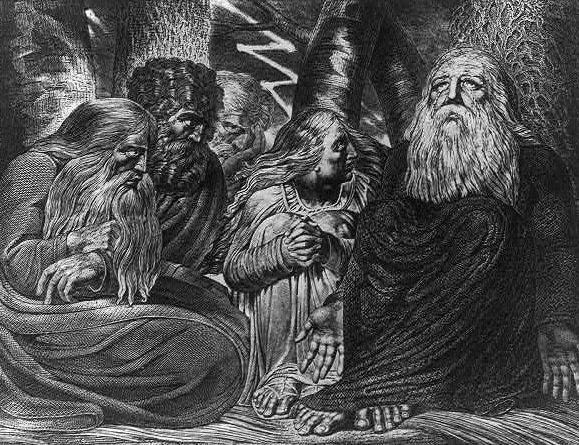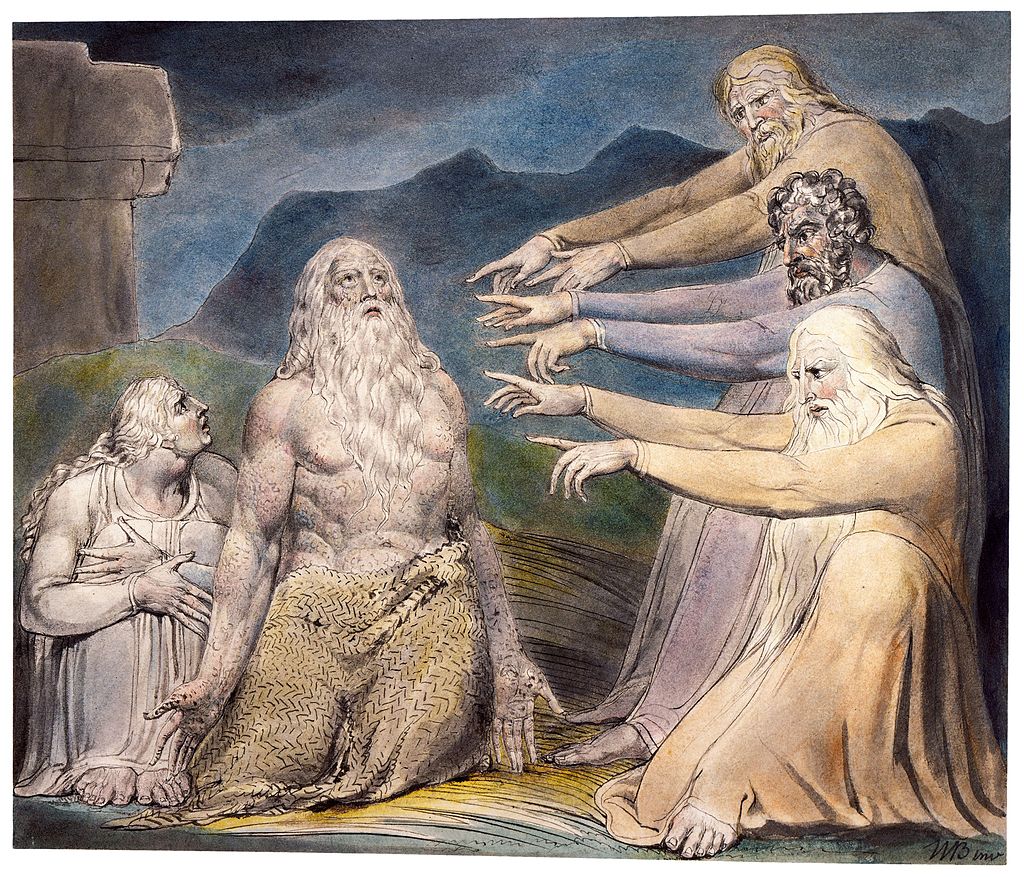Only the Accuser Gains in Condemning

Job (rhymes with “robe”) in the Bible was trying to be as righteous before God as he could be. Yet when sudden calamity struck his life none of this counted as his friends gathered around him and condemned him, saying that it must have happened because of sin in his life. But Jesus said, “Judge not, and ye shall not be judged: condemn not, and ye shall not be condemned: forgive, and ye shall be forgiven [by God]” (Luke 6:37). Are we quick to declare someone else guilty for wrongs they may or may not have committed, instead of taking a careful look at our own sins?
Physicians and Nurses Came to Conclusion Without Diagnosis
Imagine going to a medical facility for a particular malady, and after multiple doctors and nurses stare at you and ask a lot of general, unrelated questions, they immediately come to a conclusion about what your ailment must be. They have taken no tests, and never made any specific physical diagnosis of your body, externally or internally. No inquiry was made about your past to help them better determine the cause or nature of your ailment. Not one overall evaluation of your symptoms was ever completed.
You’re Prescribed a Plan Based on Their Ignorance
In other words—they do not really know much at all about what is wrong with you! They applied their personal judgment, based primarily on what little they have seen of you, and then prescribed treatment for a condition that may or may not be your actual problem. In addition, they insisted that you follow their plan, in spite of your defense concerning your situation, since they are sure that they are more knowledgeable about this than you are. This scenario resembles, in essence, what happened to Job.
As children of God, we can be just as guilty as Job’s friends when we pronounce condemnation on another. The book of Job serves as a good example for the follower of Christ to study with all sincerity.
Job’s Friends Were Convinced Job Had Done Wrong
One situation in this book we should take particular note of is the way Job’s ‘friends’ counseled him. They were fully convinced that Job had to have done something wrong to cause the suffering and downfall that he was experiencing. They believed that there was some kind of sin in his life that he refused to admit or let go of. Their form of ‘help and compassion’ were an added burden for Job more than a benefit. The Bible says, “For God sent not his Son into the world to condemn the world; but that the world through Him might be saved” (John 3:17).
Job Was Judged and Condemned With No Authority
What authority did these friends of Job have to judge him, when the very Son of God would not even do so? No matter what defense Job gave in response to their accusations, they would counter it with their self-righteous advice. Job did not yet know that God was behind his adversity, but he still strongly believed that he had not brought in on himself by sin.

By the time we reach the thirteenth chapter, we realize that Job had finally had enough of their counsel. “What ye know, the same do I know also: I am not inferior unto you. Surely I would speak to the Almighty, and I desire to reason with God” (Job 13:2-3). Job tells them here that they are not superior to him, for he certainly knows as much about himself, if not more, than they do.
Job Preferred to Take the Matter to God Alone
He would rather take this matter up directly with God. Then he stated that they “are forgers of lies, ye are all physicians of no value” (Job 13:4). He declared that they would be considered wiser if they did not say anything at all! We should pay attention to Job’s statement here, because, too often, we are guilty of doing the same thing. God never called us to condemn one another. He has reserved the carrying out of judgment for Himself, not us.
Most people find it easier to point out what they consider wrong in someone else’s life, instead of reflecting on what may be wrong in their own life.

Jesus Said That We Aren’t in a Position to Judge
Jesus said, “Judge not, that ye be not judged. For with what judgment ye judge, ye shall be judged: and with what measure ye [give out], it shall be measured to you again. And why beholdest thou the [speck or splinter] that is in thy brother’s eye, but considerest not the beam that is in thine own eye? Or how wilt thou say to thy brother, Let me pull out the [speck or splinter] out of thine eye; and, behold, a beam [is] in thine own eye?” (Matthew 7:1-4). The situation was even worse in Job’s case, because these friends were set on the idea that Job had sinned—even though they knew nothing of his true standing with God.
These ‘friends’ of Job thought they had him all figured out, while they themselves were guilty of being self-righteous.
It should be obvious that there is a bigger picture in the lives of all men that others will never see totally. We should study more of Job’s life and learn from how he responded, how his friends responded, and how God intervened in the whole matter. Instead of being “physicians of no value” in our attempts to help those we meet who are suffering like Job, let’s lift them up to God in prayer. He knows how to handle their situation better than any counsel we could offer. And let’s pray that our friends will do the same for us!
[Additional Image credits: Featured image (when available) by Bert Hardy on Freeimages.com; Opening image by William Blake from Library of Congress on Picryl (Public Domain Mark PDM)]




